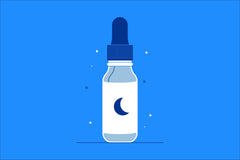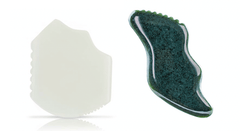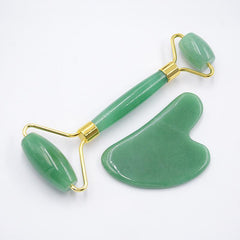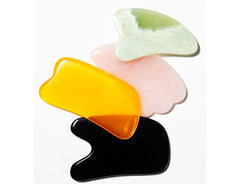How To Improve Your Sleep – Tips For Better Night’s Sleep

A good night’s sleep is just as important as a healthy diet and regular exercise. One cannot live a healthy life without proper sleep hygiene. Easier said than done, we know. If you want to improve your sleep, you have to be consistent and develop healthy sleeping habits. We have some tips to help you out but first, let’s see why sleep is so important.
Why Is Sleep Important?
There are many negative health consequences associated with a lack of sleep or poor sleep. Sleep is vital because it keeps your brain healthy. Research shows that sleep disruption reduces quality of life, creates hormonal imbalances, and increases stress levels. Not only that but it increases the risk of getting sick and developing serious diseases, such as cardiovascular disease, hypertension, and weight gain.
The most important thing you can do if you want to change your life for the better is to develop good sleeping habits.
Tips To Sleep Better At Night
Let’s dive in and explore some solutions for our sleeping problems. These tips are evidence-based and they should help you to sleep better at night.
Create A Consistent Sleep Schedule
Like with any other important changes, if you want to be successful, you have to start with a plan. In this case, the plan must include a sleep schedule you respect.
You want to optimize your circadian rhythm to get rid of brain fog and brain-related fatigue. Ideally, you want your schedule to be aligned with sunrise and sunset but since that’s not always possible due to work or life events, you should at least be consistent with your sleep and waking times.
Learn How To Keep Your Circadian Rhythm Healthy
Circadian rhythm is your body’s natural way of keeping track of time. Circadian rhythm is important for your sleep cycle but also for your metabolism. To keep it healthy, you have to make sure your body knows when to stay awake and when to go to sleep.
Increase natural exposure to light or natural sunlight during the day. This is particularly important during fall and winter when the sun sets early. If you do it, you will improve your daytime energy but also sleep quality.
It is equally important to reduce light exposure in the evening and sleep in a dark and comfortable room with no disruptions.
Stay Away From Electronic Devices In The Evening
With that in mind, you should also consider not using electronic devices during the evening because exposure to blue light tricks your body into thinking it’s daytime. So, instead of relaxing and getting ready for rest, your body reduces melatonin, a hormone responsible for making you feel relaxed and ready for deep sleep.
Stop working on your computer, playing video games or watching TV at least two hours before bedtime. There are different methods to reduce nighttime blue light exposure with apps or protective glasses if you must use your devices.
Don’t Drink Coffee Late In The Day
Drinking coffee moderately doesn’t have a bad impact on our health. It actually has numerous benefits including enhanced focus and energy. However, caffeine is not recommended in the evening because it worsens sleep quality. In fact, you should probably stop drinking coffee in the afternoon if you are sensitive to caffeine. Or stick to decaf if you love your coffee too much to give it up.
Reduce Long Daytime Naps
Naps are wonderful. They make us feel refreshed and re-energized. Moreover, they are beneficial for our health and they can enhance daytime brain function. We’re talking about power naps here so 30 minutes of sleep max. Longer naps negatively affect brain function. They can actually make you feel sleepy and tired during the day and they can lead to sleep disruption at night.
Don’t Drink Before Going To Bed
Hydration is vital for our health but it is best to reduce our fluid intake late in the evening. Otherwise, we may have to go to the bathroom too many times during the night. This can affect sleep quality and lead to a lack of energy during the day.
Even more important is to not drink alcohol at night because it can cause sleep disruption and sleep apnea. Alcohol alters melatonin production as well, which means your circadian rhythm will be negatively affected after a couple of drinks at nighttime.
Don't Eat Late in the Evening
It may be tempting to enjoy a late-night snack before heading to bed but late-night eating causes hormone disruption and can lead to poor sleep. Especially if you’re consuming a large meal. Choose healthy snacks and eat them a few hours before your bedtime if you want to sleep well.
Don’t Exercise Before Bed
Exercising regularly improves sleep patterns but not if you do it in the evening. While exercise is actually beneficial for sleep and it can significantly reduce time to fall asleep, if you do it right before bed, it will have the opposite effect. Exercise is stimulating and it increases endorphins and adrenaline, which is detrimental to falling asleep. If you exercise in the morning, you’ll get better results. Plus a lot of energy for daytime activities.
Natural Remedies For Better Night’s Sleep
Even though the tips we discussed work for many people, sometimes, our bodies are too used to bad habits and they cannot seem to get into healthier ones without a little extra help. Natural remedies can be the extra help your body needs in order to get on board with good sleep hygiene.
Natural Sleep Supplements
Natural sleep supplements like melatonin can tell your brain to relax and go to sleep. Even though it’s natural and you can get melatonin without a prescription, it is best to start with a small dosage and talk to your doctor if it doesn’t work.
Other natural supplements you can try are magnesium, valerian root, and ginkgo biloba.
Aromatherapy
Aromatherapy is another common remedy against insomnia and other sleep problems. Getting into a bedtime routine that involves essential oils can significantly reduce sleep problems. You can diffuse essential oils 30 minutes before going to sleep or take a relaxing aromatic bath. Read or listen to calming music to increase the benefits of aromatherapy. Your body will relax faster and will get ready for sleep. Lavender essential oil is particularly good as sleep aid because it has calming properties that can reduce stress and relax your mind.









